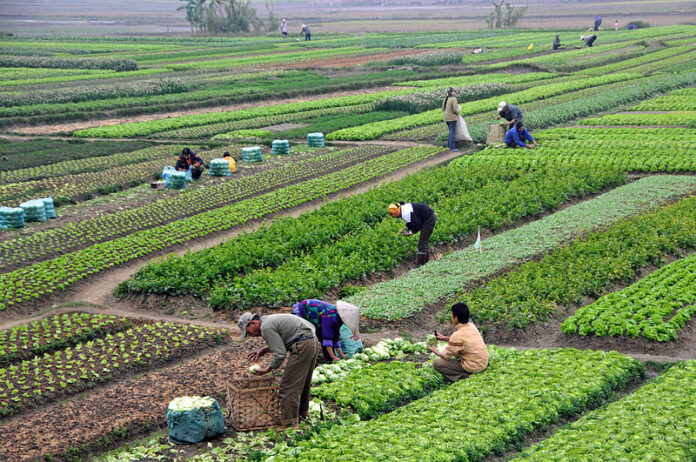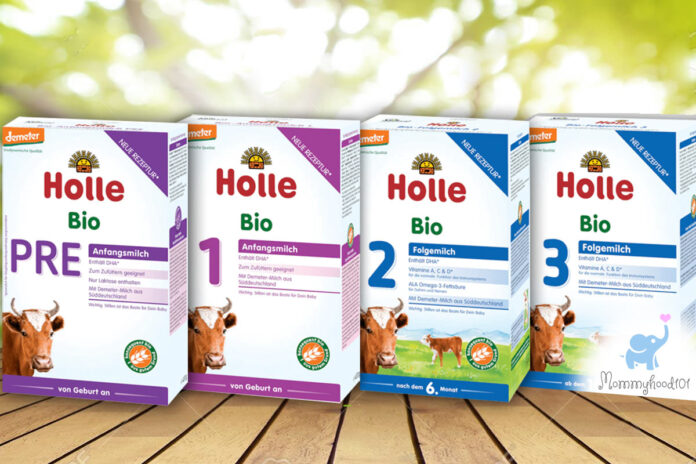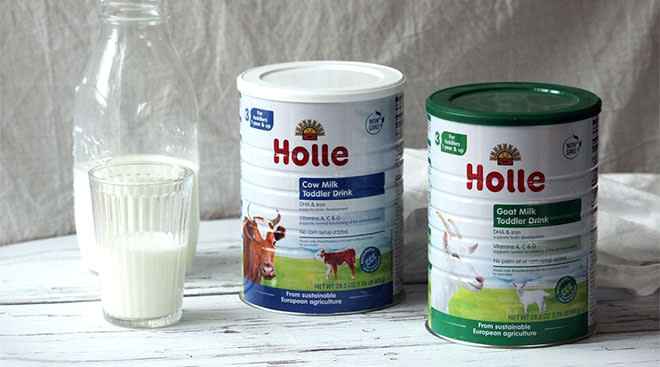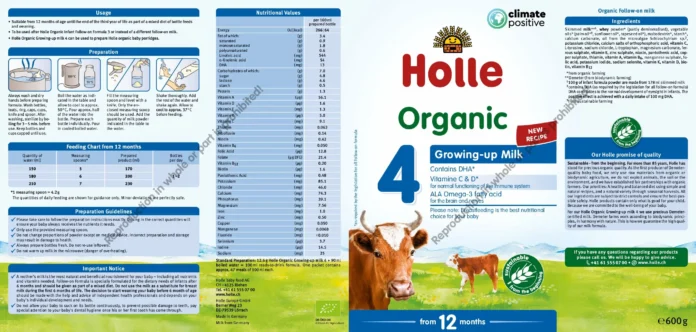If you’re a new parent, you might wonder what sustainable farming is and how it relates to baby formula. Put simply; sustainable farming is an agricultural system that doesn’t deplete the resources it uses. This means that the soil, water, and plants are all managed in a way that preserves them for future generations. Sustainable farming also aims to promote social and economic justice.
Regarding baby formula, you want to look for a brand that promotes sustainable farming. Holle is one such brand. This blog post will examine sustainable agriculture, why you should look for a baby formula that enables it, and how Holle’s baby formula supports sustainable farming.
What Is Sustainable Farming?

Sustainable farming is an agricultural system that doesn’t deplete the resources it uses. This means that the soil, water, and plants are all managed in a way that preserves them for future generations. Sustainable farming also aims to promote social and economic justice.
There are three main pillars of sustainable farming: environmental stewardship, social responsibility, and economic viability.
Environmental stewardship refers to the idea that we are responsible for taking care of the environment. This includes reducing greenhouse gas emissions, conserving water, and protecting biodiversity.
Social responsibility refers to the idea that farmers are responding to their employees, communities, and society. This includes providing fair wages and working conditions, good neighbors, and producing safe food.
Economic viability refers to the idea that farms must be economically viable to survive. This includes producing high-quality products, managing costs effectively, and successfully marketing products.
Why Should You Look For A Baby Formula That Promotes Sustainable Farming?

As a new parent, you want to do everything you can to give your child the best possible start in life. One way you can do this is by looking for a baby formula that promotes sustainable farming. There are two reasons why this is important. First of all, sustainable agriculture is better for the environment. Your child will inherit a cleaner world with more diverse plant and animal species. Second of all, sustainable farming is better for human health. This means your child will access healthier food options as they grow up.
Nutritional Quality of Holle’s Baby Food Products
These practices have a direct impact on the nutritional quality of Holle’s baby food products. By using organic and biodynamic farming methods, Holle ensures that its ingredients are grown without synthetic pesticides and fertilizers that may harm the environment and human health.
Organic and biodynamic farming methods also prioritize soil health and biodiversity, resulting in more nutrient-dense soil and healthier plants. This translates into more nutritious ingredients that are used to make Holle’s baby food products.
The use of sustainable farming practices also helps to maintain the natural flavors and textures of the ingredients. By avoiding the use of artificial additives and preservatives, Holle’s baby food products are able to retain their natural taste and nutritional value.
Moreover, by sourcing ingredients locally and regionally, Holle is able to ensure that the ingredients are fresh and retain their nutritional value. This reduces the need for long-distance transportation, which can result in the loss of nutrients and increased carbon emissions.
How Does The Holle Baby Formula Promote Sustainable Farming?

The Holle baby formula promotes sustainable farming in several ways. First of all, Holle sources its milk from goats who are pasture-raised on biodynamic farms. These farms follow strict environmental standards and are committed to preserving the environment for future generations. Second of all, Holle’s manufacturing process is carbon-neutral. This means that they offset their emissions by investing in renewable energy projects.
Finally, Holle invests in Fairtrade initiatives. These initiatives support small-scale farmers and help them access fair prices, decent working conditions, and social benefits. All these things together make Holle’s baby formula one of the most sustainable on the market.
Fair Trade Practices in Holle’s Supply Chain

Holle Baby Food is committed to using fair trade practices in its supply chain to ensure that farmers and workers are treated fairly and paid a fair price for their products and labor. The company believes that fair trade practices are essential to promoting sustainability and social responsibility in the food industry.
To ensure fair trade practices, it works directly with farmers and suppliers to establish long-term relationships based on trust and transparency. The company pays fair prices for its ingredients and provides farmers with support and training to help them improve their farming practices and increase their yields.
It also works with certification organizations, such as Fairtrade International and Demeter, to ensure that its ingredients meet strict standards for fair trade, sustainability, and organic farming. These certifications provide assurance to consumers that Holle’s products are produced with social and environmental responsibility in mind.
In addition to fair prices, it also supports social development projects in the communities where its ingredients are sourced. These projects may include building schools or health clinics, providing clean water, or supporting local cultural initiatives.
Holle’s Focus on Reducing Waste and Promoting Recycling
It is committed to reducing waste and promoting recycling in its operations as part of its sustainable farming practices. The company recognizes the importance of minimizing its environmental impact and has implemented a number of initiatives to achieve this goal.
Their production processes use a closed-loop system, which means that waste from one process is used as a resource in another. For example, fruit pulp is used as animal feed, and food scraps are composted for use as fertilizer. This reduces the amount of waste that goes to landfill and minimizes the company’s carbon footprint.
In addition, it promotes recycling throughout its operations by using recyclable materials for its packaging and encouraging customers to recycle their used containers. The company also uses energy-efficient equipment and lighting to reduce energy consumption and promote sustainability.
Conclusion
We hope this blog post has given you insights into sustainable farming, why it’s important, and how the Holle promotes it. As a new parent, it’s important to ensure you’re doing everything possible to give your child the best possible start in life. One way you can do this is by looking for a baby formula that promotes sustainability.









